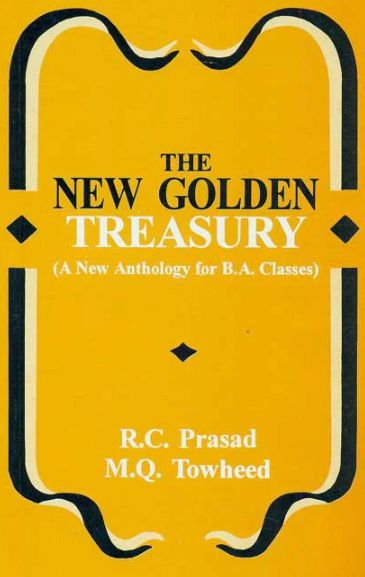

This anthology is intended, in general, for anyone who wishes to acquaint himself with English poetry and, in particular, for the student-reader in undergraduate courses who may wish to have some of the best poems in the English language in one handy selection. In selecting for this book from the great bulk of English poetry, the editors have been guided by the notion that space should be given only to those poets who are acknowledge masters of imaginative writing, whatever their subject matter might be. From the poets so chosen, particular poems were selected for their characteristic excellence of substance and form. Wherever possible the pieces are complete; where space would not allow completeness, as in the case of dramatic pieces, enough has been given to suggest the nature of the total poem. In the course of their work the editors have been struck by the incisive implication Matthew Arnold's belief in the 'best that has been thought and said' that the best said is commonly the best thought. They have, however, kept their eyes steadily on both the abilities and the limitations of students when they are faced with a piece of creative writing and that, too, in a language which is not their own. Their minds are accustomed, accustomed, perhaps, to work best at a literal-that is an unimaginative-level. The editors have, therefore, offered the sort of material which may be readily understood and immediately enjoyed. They have also tried to show the student-reader the characteristic types of poetry which have been written in the English language. The poets are arranged almost chronologically so that he can see how tastes and forms have changed even though the basic characteristics have remained constant. If he has to read poetry well, he must know what its characteristics are and what the poet is attempting to do. He must not expect the fully developed situations of the novel, the play, or even the short story. Rather, he should look for sudden bursts of insight into some corner of human experience, More important, possibly, he should look forward to sharing briefly in the experience itself. For it is part of the magic of poetry that at one and the same time it can tell you about experience and make you feel its peculiar significance. The Poems and poetic extracts have been taken from a wide variety of sources, and no attempt has been made to establish definitive texts. Where possible, however, they have been checked for accuracy with texts in Oxford or other authorized editions. Spelling and capitalization, with few exceptions, have been modernized. The Metaphysicals of the seventeenth century and the neo-classical satirists of the Augustan Age have been adequately represented. To our many colleagues whose suggestions and interpretations we have requisitioned, we most gratefully acknowledge our indebtedness, wishing that space allowed us to name each one. More particularly we thank, forunflagging help and encouragement, Professor George Shepperson of Edinburgh University; Dr. D.E. Rhodes of the British Museum Library, London; Dr. T.P. Chitanand of Bombay University; Dr. Tulsi Ram of M.D. University; Rohtak; Dr. Awadhesh Sharma of Bhagalpur University; Rosewita Prasad and Pratima, both students in the Post-Graduate Dept. of English, Patna University.
About the Author
DR. R. C. PRASAD was University Professor of English in Patna University where he taught for about three decades. He was an eminent author, translator and editor. He had a good number of books to his credit.
Your cart is currently empty.